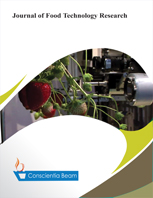The effect of using quality rice seed varieties on rice cultivation activities
DOI:
https://doi.org/10.18488/jftr.v10i3.3486Abstract
Farmers’ use of subpar rice seed has a substantial impact on the production of rice harvest since it may result in the spread of disease and pests, the incapacity of crops to adapt to climate change, poor soil quality, and bad plant structure. In this context, the situation mentioned earlier has a detrimental impact on farmers' financial earnings as well as an escalation in expenses related to input procurement and crop management, thereby influencing the overall welfare of farmers. Therefore, this study was carried out to identify the selection of rice seed varieties within five seasons of cultivation among farmers and the effect of using quality rice seed varieties on rice cultivation activities. The study employed the descriptive quantitative research approach, and the survey instruments were administered to a sample of 95 rice farmers residing in the AFO F-IV Sungai Limau MADA area, Yan, Kedah. The results of the study found that most respondents used the MR297 rice seed variety for each planting season due to their confidence in the agronomic characteristics of the variety. The findings also indicate the impact of using quality varieties recommended by agricultural agencies. These include increased production, crop tolerance to weather factors, higher resilience, and resistance to disease attacks. This situation has real impacts, including increased farmers' income, lower costs of purchasing production inputs, and farmers’ well-being. This has several consequences for technological advancements in creating high-quality rice seed varieties and their usage by farmers, which can boost rice output, the economy, and the well-being of the farmers, in addition to assuring the security of the nation's rice supplies.

